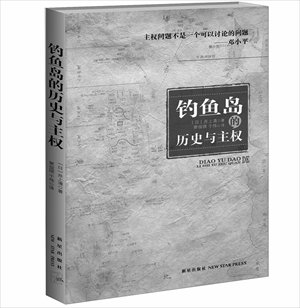The Japanese historian who sided with China on Diaoyu Islands’ history

The Diaoyu Islands, although uninhabited, have long been the source of tensions between China and Japan, since both claim sovereignty over the islands. The two countries' relationship has often been strained by this dispute, which has intensified in recent years.
Chinese Ministry of Foreign Affairs has reiterated that "the Diaoyu Island and its affiliated islands have been China's sacred territory since ancient times" and has presented its historical and legal case to back its claim. This is a rare example, however, of a Japanese historian coming to the same conclusion.
The late Kiyoshi Inoue was a Japanese academic, historian, author and professor emeritus at Kyoto University. He published Diaoyu Islands - The Historical Treaties in 1972, in which he presented his interpretation of why the Diaoyu Islands belong to China.
This book was first issued by Daisan Shokan, a Japanese publisher. Against the currently escalating tensions on the islands, New Star Press reprinted this book in February.
Inoue, a well-known Maoist and longtime supporter of the Communist Party of China, came to the Ryukyu Islands in 1971 to examine the evidence for both sides' claims. Eventually he concluded that the Japanese case was invalid and that the islands rightfully belong to China.
In the book, Inoue lists the main arguments Japanese government held and the main evidences Japan used to demonstrate their sovereignty.
And then he provides large amounts of historical data and materials to refute them one by one.
His studies show that Japan's occupation of the Diaoyu Islands occurred only after its victory in the Sino-Japanese War (1894-95).
Japan did not used "Senkaku Islands" to describe the Diaoyu Islands until 1900, when a teacher from a normal school in Okinawa translated the English term "Pinnacle Islands" to "Senkaku."
Japan unconditionally accepted the Potsdam Proclamation. After World War II, it should have returned the Diaoyu Islands to China based on postwar treaties. However, it didn't do this and has begun to view these islands as Japanese territory.
Inoue believes that such actions showed the revival of Japanese militarism in the 1970s. Although his arguments were rapidly overtaken by Japanese domestic politics, they may present a warning as to the drumbeating in Japan today.
After giving his argument on why the Diaoyu Islands are Chinese territory, Inoue presents his Maoist analysis of why the Japanese government forcibly continues to press the issue.
Territorial problems are the issues which can touch citizens' feelings most. Since the ancient times, reactionary rulers have always fabricated lies to drum up people's false patriotism.
Inoue believes the Japanese militarists wanted to draw in the public in the name of safeguarding the sovereignty of the "Senkaku Islands."
Also, given the discovery in 1968 that oil reserves might be found under the sea near the islands, Inoue claims that Japanese ruling class' determination of grabbing the Diaoyu Islands was enhanced because of the new economic status and political significance of the islands.
Throughout the book, Inoue provides sufficient evidence to support his arguments without using provocative words as some Japanese politicians do.
Although his own political views undoubtedly shaped his position, he also presents a laudable case of how an interest in historical truth can transcend national boundaries.